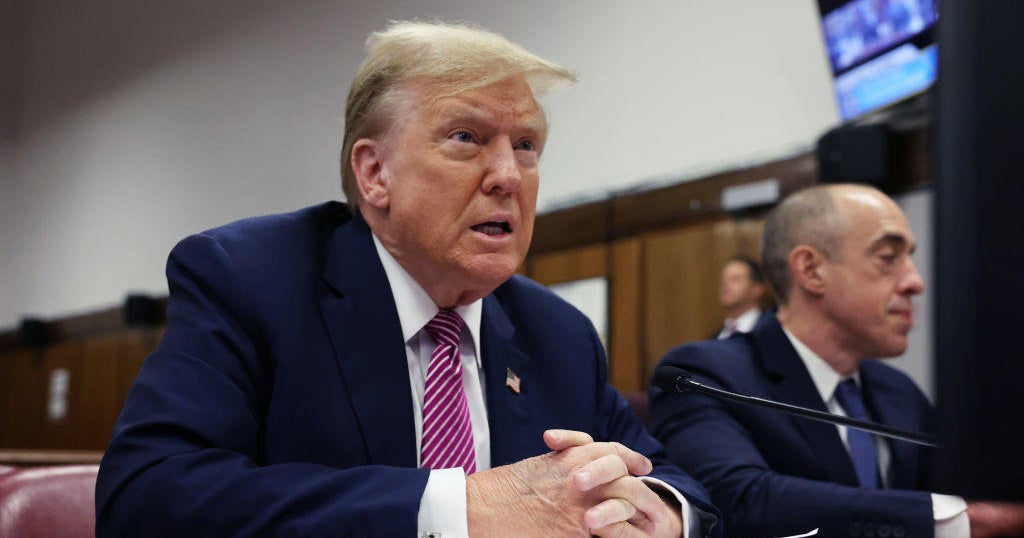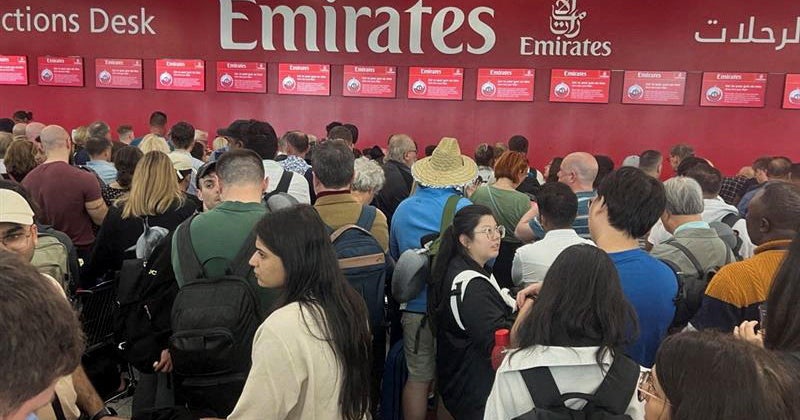U.S. to world: Deal with migration crisis yourselves
UNITED NATIONS -- U.N. global migration talks began Monday with hopes to reach international consensus in 2018. The number of people being forced to flee their homes is staggering.
Today, 65.6 million people -- including refugees and migrants -- are being forcibly displaced from their homes, according to the United Nations Refugee Agency (UNHCR). U.N. agencies are now overwhelmed.
There is a backlash against newcomers in the U.S. and Europe, where an economic downturn has found its basic services severely taxed.
On Saturday, just two days before the Mexico summit began, the U.S. informed U.N. Secretary General Antonio Guterres that the U.S. would end its participation in the Global Compact on Migration (GCM), adding that many of the declaration's provisions are inconsistent with U.S. immigration and refugee policies, along with the Trump administration's immigration principles.
U.S. Ambassador Nikki Haley said "the global approach in the New York declaration is simply not compatible with U.S. sovereignty."
"While we will continue to engage on a number of fronts at the U.N., in this case, we simply cannot in good faith support a process that could undermine the sovereign right of the U.S. to enforce our immigration laws and secure our borders," U.S. Secretary of State Rex Tillerson said.
Mexico's Ambassador to the U.N., J.J. Gómez Camacho told CBS News, "The process will remain open for the U.S. if it decides to engage ... it is about making migration orderly, safe and regular through cooperation, respect of national sovereignty and the protection of human rights."
Last year, the U.S. held its own summit in September, 2016, and brought together countries that agreed in advance to make a contribution to one of the areas of reform. They called it a "pay-to-play" leaders meeting. In the end, the twin summits provided a complementary framework for both refugees and migrants, with funding to support resettlement programs. The U.S. agreed to the New York declaration and GCM because of the non-binding, non-enforceable nature of the agreements.
In 2016, all 193 members of the General Assembly unanimously adopted the non-binding political declaration, the New York declaration for refugees and migrants, pledging to uphold the rights of refugees, help them resettle and ensure they have access to education and jobs.
The point of the twin refugee and migration summits -- one led by the U.N. and the other by the U.S. -- was to find a way to create a framework to include migrants in the U.N. system and to share the cost and resettlement of refugees fleeing war and persecution.
According to the White House, at the time, 52 countries and international organizations attended and pledged to increase their current financial contributions to U.N. appeals and international humanitarian organizations by $4.5 billion -- doubling the number of refugees they resettled or admitted legally in 2016 to 360,000, improving access to education for 1 million refugee children globally and giving legal aid to 1 million refugees globally.
The response to the U.S. withdrawal from Obama's former U.N. Ambassador Samantha Power was swift and snarky.
In dueling tweets, Haley first wrote: "America is proud of our immigrant heritage and our long-standing moral leadership in providing support to migrant and refugee populations across the globe."
Mexico's Foreign Minister Videgaray said he regretted the decision of the U.S. government to withdraw from the Global Migration Pact.
"Undoubtedly, any country, in the case of Mexico and it in the case of the U.S., in the full exercise of its sovereignty, has the right to define its migration policies," he said. "The U.S. is not the exception. We respect that right absolutely."
"What is lost here," he continued, "is an opportunity. An opportunity to exercise leadership, an opportunity to influence, an opportunity to work together in favor of a phenomenon that concerns us all."
From the U.S. side, the opposition within the Trump administration was overwhelming. White House senior adviser Stephen Miller has been known to favor a withdrawal, while the country's U.N. envoy has favored staying in the unenforceable compact. Human rights groups responded with surprise, but support came quickly from Trump's anti-immigrant base.
Americans, as usual, remain divided on migration. Obama was able to garner support because it involved other countries' commitments to stem migration.
"In the (2016) New York Declaration for Refugees and Migrants, all U.N. member states acknowledged that no one state can manage international migration on its own," said U.N. General Assembly President Miroslav Lajcak's spokesman Brenden Varma.
In Puerto Vallarta, Mexico, the conference continued without the U.S.
In Mexico, Louise Arbor, representative of the secretary general of the U.N. for migration, recalled that in September 2016, heads of state met and signed the Declaration of New York, which they committed to manage migration by saying in part: "National policies on migration can't work unless they fit in a cooperative, international model."




